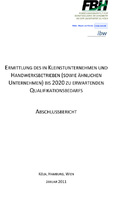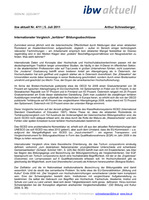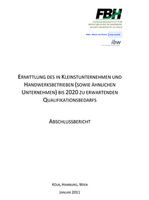ibw draws up reports and analyses at the interfaces between education and training, skill needs of businesses and qualifications.
ibw’s research work covers a wide gamut of topics and ranges from analyses of dual VET, school-based and tertiary education and labour market analyses onto continuing vocational education and training (CVET).
In our research library you will find well-founded data, studies and background analyses conducted by ibw at the interface between education, business and qualification. Most of our ibw studies have a national and sometimes also regional focus. On account of the increasingly strong international perspective due to the EU’s education policy and OECD’s comparisons of systems, however, there is also growing international demand for ibw’s expertise. ibw has been a partner or coordinator of a large number of EU projects for many years. In addition, ibw is a cooperation partner of the EU’s Centre for the Development of Vocational Training (Cedefop).




